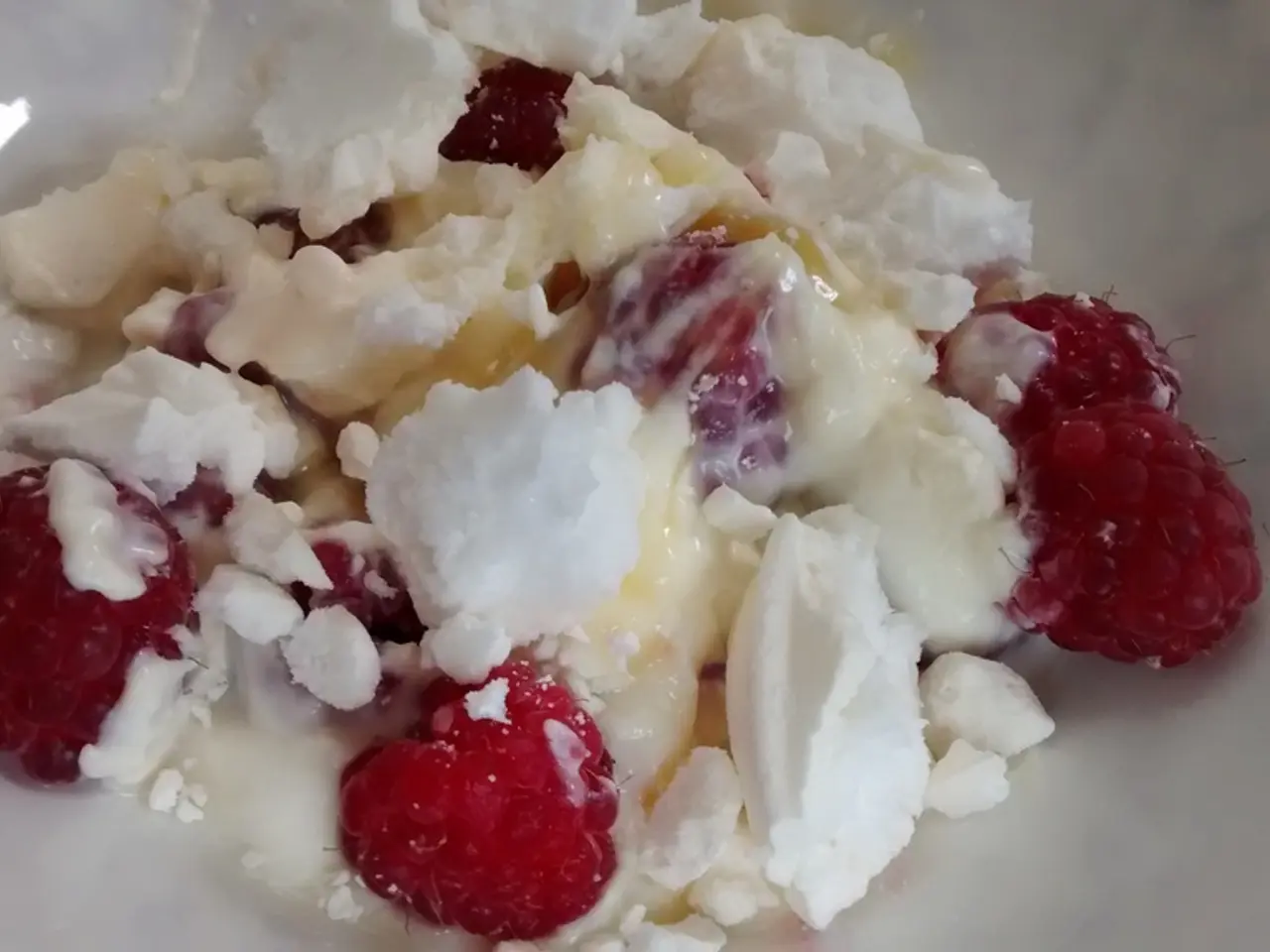Nutritious options for preventing and aiding pressure ulcers in the skin.
A balanced diet rich in essential nutrients can significantly aid in the prevention and healing of pressure sores. Here are some foods that can help support cellular repair, reduce inflammation, and boost overall immune response, making them crucial in pressure sore management.
Protein-Rich Foods
Protein is vital for collagen formation and general tissue repair, and it plays a crucial role in pressure sore healing. Lean meats such as poultry and fish, like sardines, eggs, dairy products such as yogurt, and legumes are key protein sources. Sardines, in particular, offer high-quality protein and omega-3 fatty acids, which have anti-inflammatory properties beneficial for healing [4].
Amino Acid-Rich Foods
Amino acids, primarily found in high-protein sources like eggs, dairy, fish, legumes, and nuts/seeds, are essential for wound repair. Foods such as almonds, walnuts, chia seeds, flaxseeds, pumpkin seeds, and mushrooms provide the necessary amino acids for tissue repair [1][2].
Good Fats and Oils
Good fats, especially omega-3 fatty acids and monounsaturated fats, help reduce inflammation and improve cellular health. Foods rich in these include fatty fish like sardines, nuts and seeds, and extra virgin olive oil. Extra virgin olive oil offers antioxidants and anti-inflammatory benefits, making it suitable for cooking or as a dressing to protect vessels and support healing [2][4].
Colorful Vegetables and Citrus Fruits
Consuming colorful vegetables and citrus fruits provides antioxidants and vitamin C, which further supports collagen synthesis and immune function necessary for pressure sore recovery [1].
In summary, a diet rich in fatty fish, lean poultry and eggs, yogurt, nuts and seeds, extra virgin olive oil, colorful vegetables, and citrus fruits can help prevent and heal pressure sores. This combination supports cellular repair, reduces inflammation, aids collagen production, and improves overall immune response crucial in pressure sore management.
A nutritious and wholesome meal is key to preventing pressure ulcers. Caregivers should ensure the elderly eat healthily to prevent pressure ulcers, and malnourished individuals are at a higher risk of developing pressure ulcers and chronic wounds that do not heal easily. Not eating a healthy diet and not drinking enough water can facilitate the development of pressure ulcers, and preventing dehydration is also important in the prevention of pressure ulcers.
References:
[1] Nutrition and Pressure Ulcers. (2021). Retrieved from https://www.woundsinternational.com/library/nutrition-and-pressure-ulcers
[2] Pressure Ulcers and Nutrition. (2021). Retrieved from https://www.wounds-uk.com/knowledge-centre/pressure-ulcers/pressure-ulcers-and-nutrition
[3] Pressure Ulcers: Prevention and Treatment. (2021). Retrieved from https://www.nhs.uk/conditions/pressure-ulcers/
[4] Omega-3 Fatty Acids and Wound Healing. (2021). Retrieved from https://www.ncbi.nlm.nih.gov/pmc/articles/PMC5362818/
- Science reveals that supplements, when combined with a balanced diet, can further enhance wound healing and improve overall health in managing pressure sores.
- Workplace wellness programs often include education on nutrition and its role in preventing chronic diseases, such as chronic kidney disease, cancer, and respiratory conditions.
- Medical conditions like diabetes and autoimmune disorders may affect a person's digestive health, highlighting the importance of proper nutrition and therapies and treatments for maintaining balance.
- Eye health can be supported by a diet rich in vitamins A, C, and E, found in foods such as carrots, citrus fruits, nuts, and leafy greens.
- Hearing impairment can be influenced by numerous factors, including age, noise exposure, and certain medical conditions, making a healthy diet and regular exercise crucial for maintaining cardiovascular health and overall wellness.
- Psoriasis, a common skin condition, can benefit from a skin-care regimen that includes omega-3 fatty acids found in foods like sardines, nuts, and seeds, as well as CBD oil, which has anti-inflammatory properties.
- proper nutrition and skin-care practices can help combat skin conditions, such as eczema and acne, and support overall skin health and aging gracefully.
- Women's health encompasses various aspects such as menopause, gynecological issues, and reproductive health, which can be influenced by nutrition and fitness and exercise.
- Maintaining good nutrition is essential for managing men's health issues, such as prostate health and testosterone levels, as well as promoting general wellness and vitality.
- Aging can impact nutrient absorption, so it's crucial to consume a variety of nutrient-dense foods, including lean meats, whole grains, fruits, vegetables, and healthy fats, like those found in fatty fish and nuts.
- Don't forget about the importance of hydration in maintaining eye health, hearing, and overall wellness, as dehydration can contribute to pressure ulcers and chronic wounds.
- In addition to their immune-boosting properties, therapies and treatments like acupuncture and massage can complement a healthy diet and fitness routine for improved overall health and wellness.




